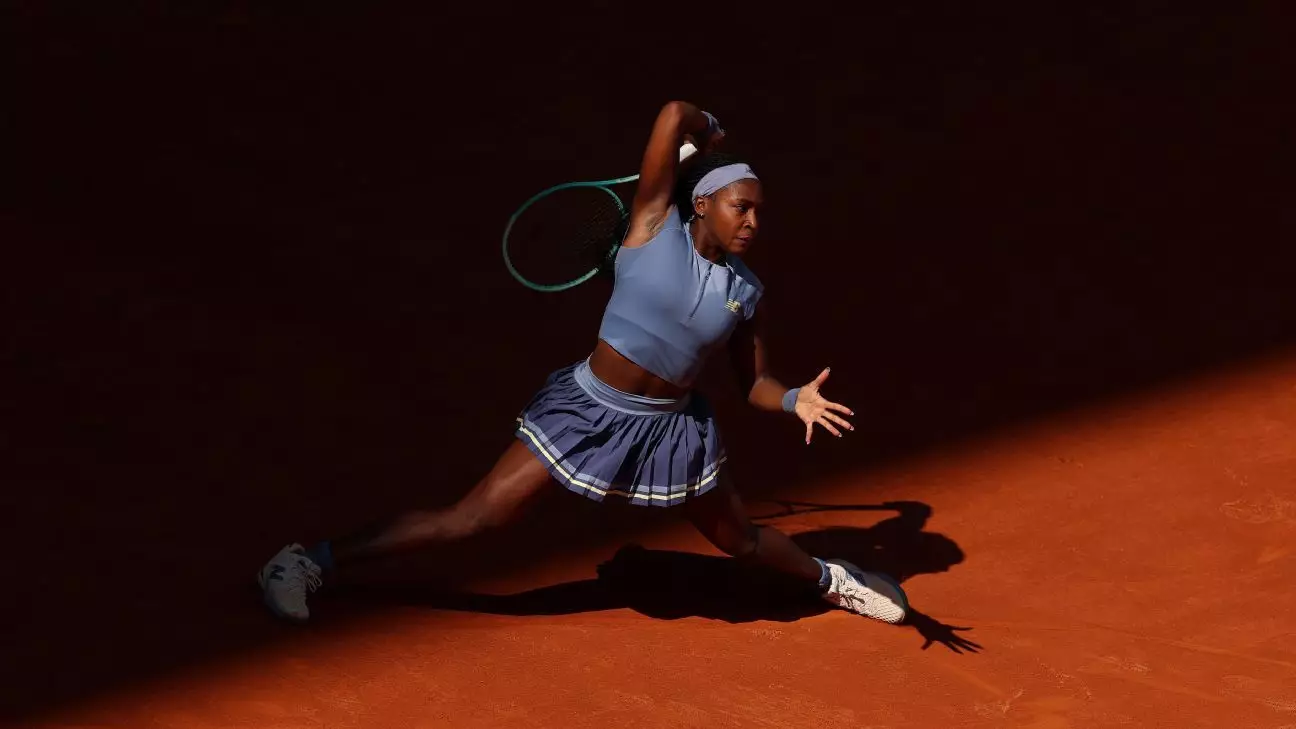Coco Gauff has once again showcased her audacity and talent, overwhelming the reigning champion Iga Swiatek with a resounding victory of 6-1, 6-1 in the semifinals of the Madrid Open. This impressive win not only secures Gauff’s spot in her first singles final at this prestigious clay-court tournament but signifies a marked shift in power dynamics within women’s tennis. The fourth-ranked Gauff eclipsed the second-ranked Swiatek in a match that was less about mere numbers and more a testament to her relentless aggression and strategic superiority.
It is essential to emphasize the psychological elements of Gauff’s gameplay. From the outset, she adopted an aggressive mentality, something she herself acknowledged in her post-match comments. This mindset didn’t just produce a scoreline; it had a profound effect on Swiatek’s game. Gauff’s ability to break her opponent’s serve not once, but three times in the first set, speaks volumes about her tactical acumen. For Gauff, this win marks her debut victory on clay against Swiatek, who previously held an 11-4 advantage in their matches.
Iga Swiatek: A Struggle with Self-doubt
Contrastingly, Swiatek’s performance was fraught with confusion and frustration. The defending champion, who has enjoyed steady success on the WTA Tour, appeared noticeably rattled and fell into an uncommon lapse of concentration. Her candid admission of a lack of readiness—both physically and mentally—highlights a critical moment in her career. The code violation issued during the match for an audible obscenity encapsulates this struggle. Swiatek was not just playing against Gauff; she was battling her internal demons, which became evident in her inability to adapt when her initial plans crumbled.
“I couldn’t really get my level up,” Swiatek lamented, clearly aware that Gauff’s performance had forced her into a defensive position. The notion of having no plan B is especially disheartening for a player of her caliber. It’s this inability to adjust that ultimately led to her collapse; without her usual confidence in her movement and shots, she was left floundering.
The Emotional Weight of Competition
Swiatek’s introspection offers a glimpse into the emotional toll that professional sports can exert on an athlete. Even after achieving commendable milestones in her career, the pressure can loom large, nagging at her self-esteem and performance. Her feelings of heaviness and reliance on forced movements suggest a disconnect between her physical capabilities and her mental state. This internal conflict is far more complex than the on-court drama, representing the challenges faced by elite athletes who must constantly juggle expectations amidst intense competition.
Gauff, on the other hand, exemplified what it means to rise to the occasion. Her ability to dominate in such a high-stakes environment speaks not only to her skill set but also to her burgeoning confidence, which could potentially herald a new era in women’s tennis. As she prepares to face either Aryna Sabalenka or Elina Svitolina in the finals, the anticipation around her potential performance is palpable. Gauff’s evolution as a player may be just beginning, and her previous victories against top-ranked players have emboldened her and showcased her growth.
Broader Implications for the Tournament
The Madrid Open has been rife with unexpected twists this season. The blackout that affected matches earlier in the week illustrated the chaotic nature of the sport. Yet, this unpredictability also serves as a rich backdrop for Gauff’s remarkable journey towards the final. With Casper Ruud’s advancement in the men’s draw, the tournament has seen its fair share of upsets and surprises across both genders.
Each of these narratives intertwines to create a dynamic tableau of competition and resilience in elite tennis. Gauff’s ascent to the final, juxtaposed against Swiatek’s uncharacteristic meltdown, opens a dialogue about mental fortitude, and how crucial it is in a sport where the line between victory and defeat often hangs by a thread. Witnessing Gauff’s fearless approach against such a formidable opponent reshapes perceptions of capability in the sport. It paints a hopeful picture for future encounters where players can challenge not just their opponents, but also their own limits.


Leave a Reply